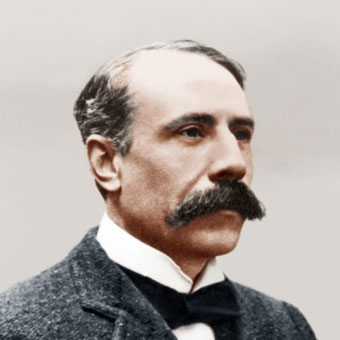
Edward Elgar

Born in Worcester in 1857, English composer and conductor Sir Edward Elgar began his musical career under the tutelage of his father – a music shop owner who was also an organist, piano-forte tuner, and teacher. While showing an early aptitude for music, finances kept Elgar joining the conservatory. Instead, Elgar became the assistant organist at St. George’s Roman Catholic Church and began working for his father in his shop. Soon after this, Elgar began playing the violin, joined several local orchestral and chamber groups, and began composing for the quintet he formed with his brothers and friends.
In 1877, Elgar traveled to London for violin lessons from Pollitzer, but soon realized he would never become a virtuoso and he abandoned them. In 1889, Elgar married a general’s daughter and moved to London where he found no success. He returned to Worcester a year later and continued his work with the Three Choirs Festival Orchestra, his teaching and positions in local orchestras. It wasn’t until 10 years later that he found his first large-scale success in London with the first performance Variations on an Original Theme (Enigma).
Elgar died in Worcester in 1934.



